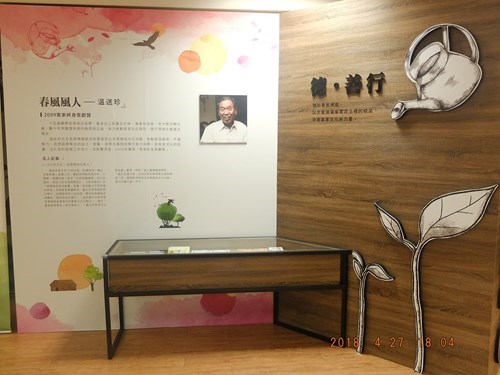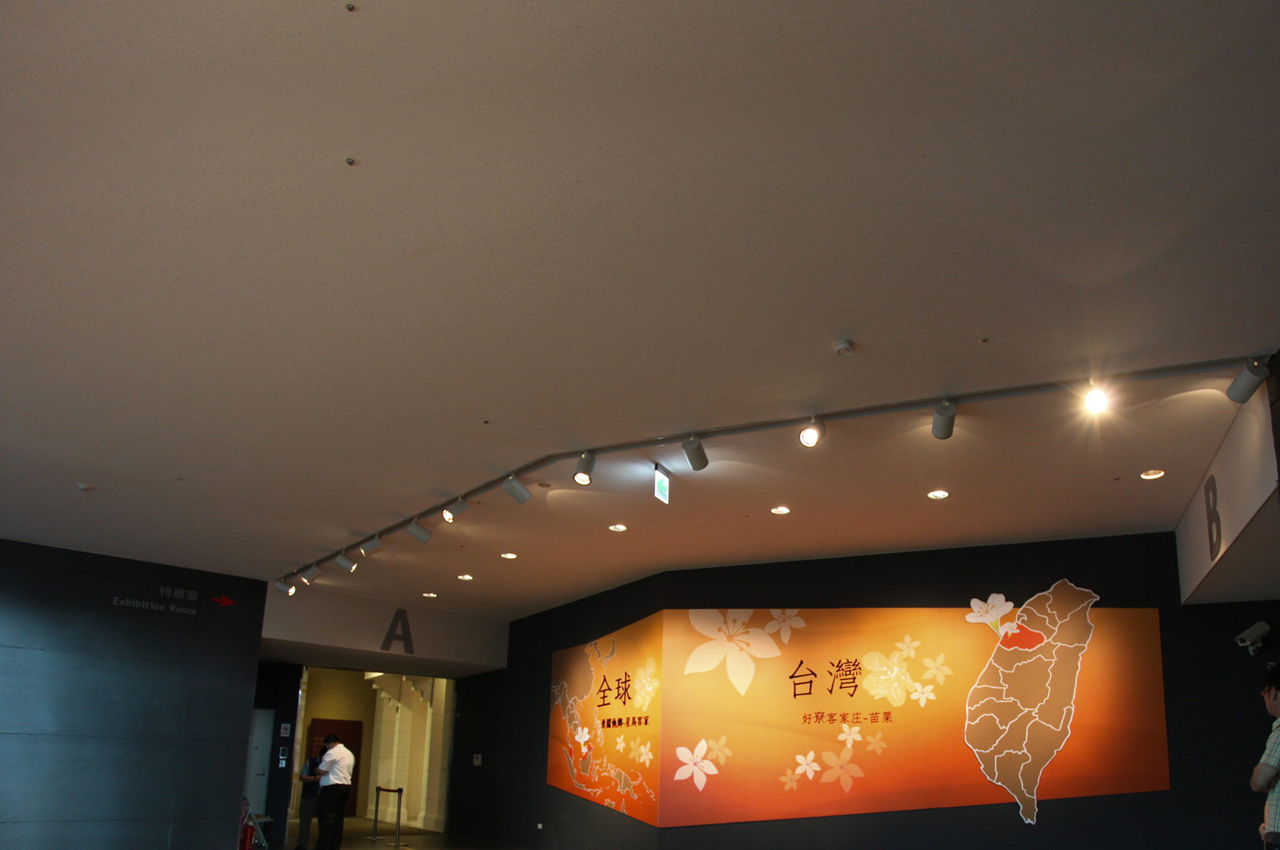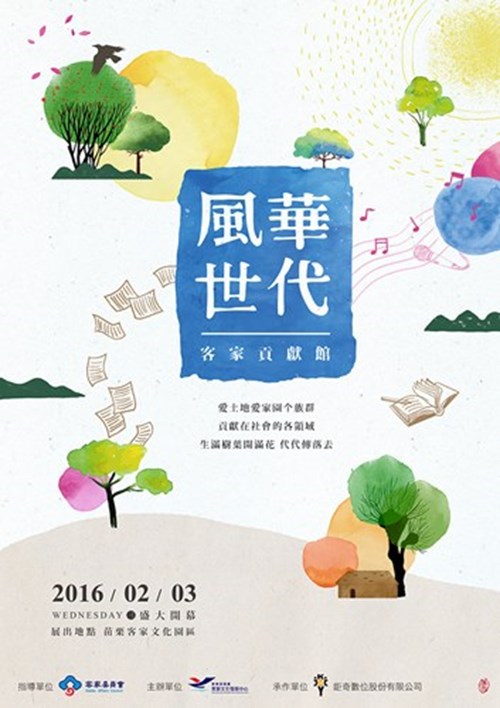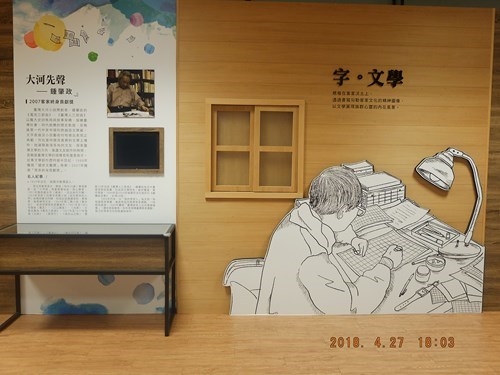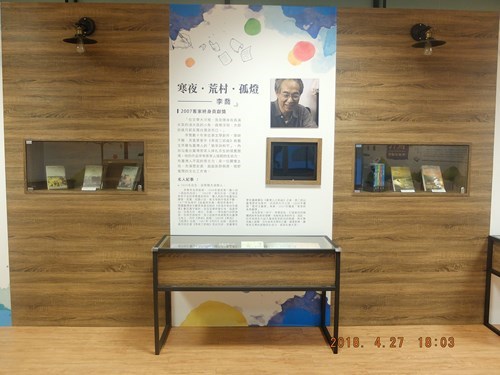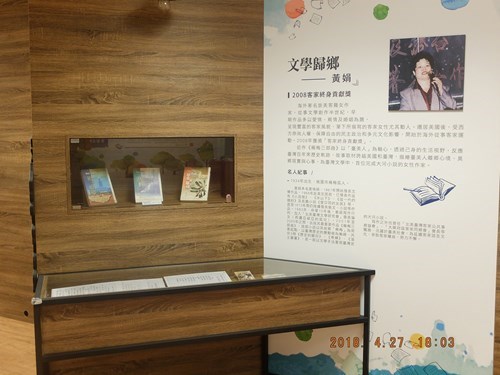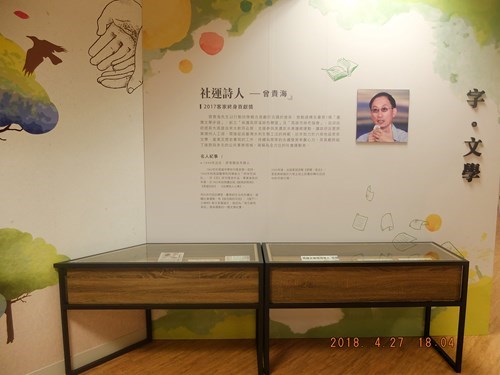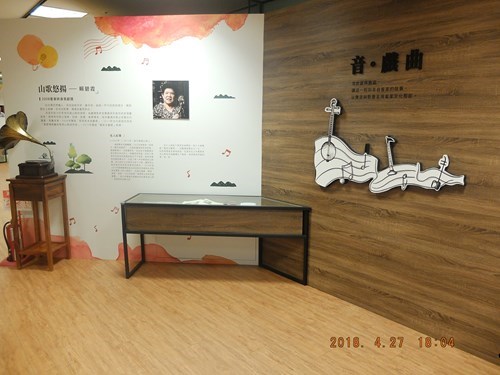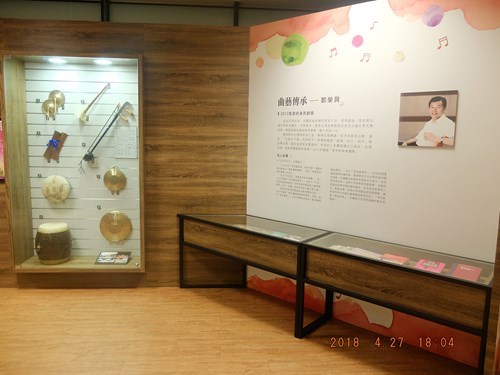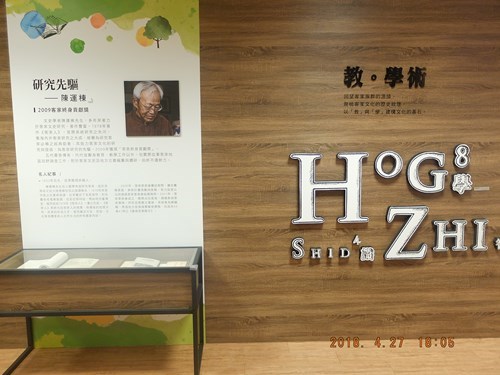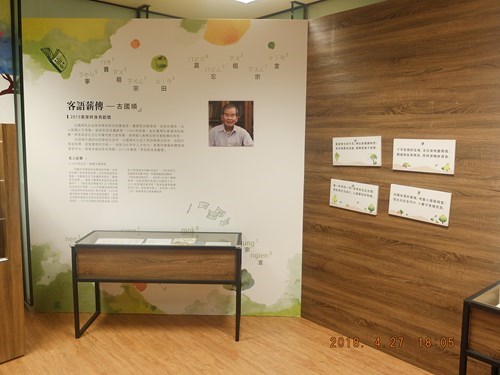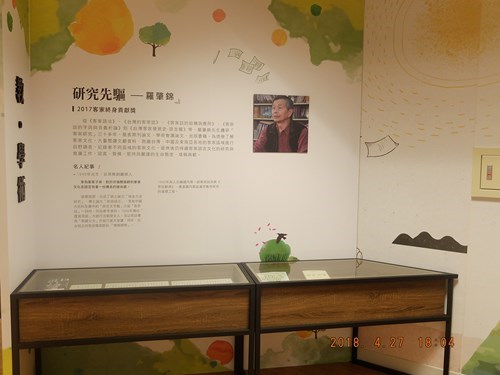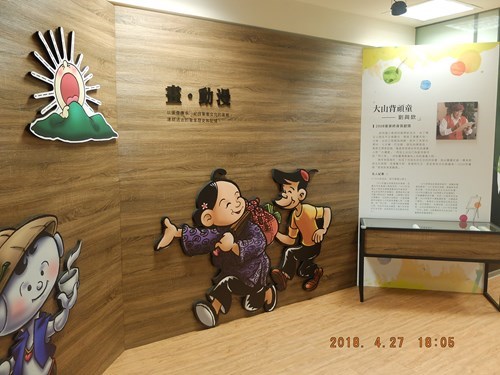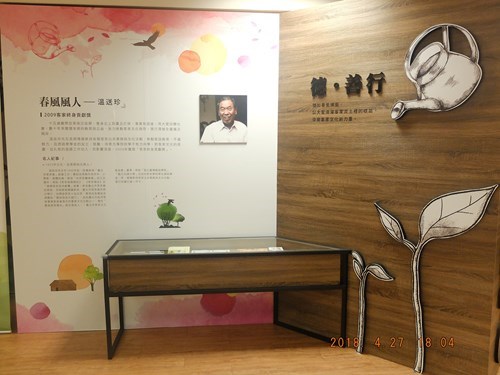Exhibition Review
8th Special Exhibition Hall: Age of Elegance
From: October 31, 2015
At: Taiwan Hakka Museum 8th Special Exhibition Hall
8th Special Exhibition Hall/Age of Elegance
Hakka Contribution Hall (full scene experience)
About the Exhibition
To commend the exemplary achievements of people of Hakka ethnicity in every field, the Hakka Affairs Council in 2007 established the Hakka Contribution Awards, reviewing and rewarding those who have made outstanding contributions in the areas of language, literature, history, academia, art, cultural and creative industry, public affairs and overseas promotion. In 2015, the Hakka Culture Development Center’s Miaoli Park planned to inaugurate the Hakka Contribution Hall to exhibit the life stories of each year’s winners of the Hakka Contribution Awards’ highest honor, the Lifetime Contribution Award. As well as praising and highlighting the achievements of the recipients, it is also hoped that it may stir Hakka people and young people to move forward with a spirit of innovation and change, to pass on and discover the beauty of Hakka culture.
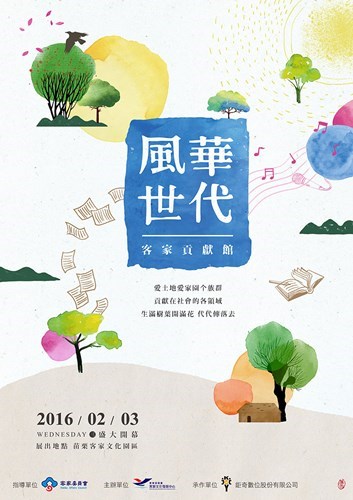
Literature
Forebear of Fleuve – Chung Chao-cheng
The originator of the roman-fleuve (novel cycle) in Taiwan, Chung Chao-cheng’s “Turbid Waters Trilogy” and “Taiwanese Trilogy” through sweeping massive epic patterns and narrative structure depicting the historical background of the transformation of Taiwanese society and times. Among the first generation of postwar writers, Chung smoothly transcends obstacles of language and sets an outstanding standard in the expressiveness of his words and his novel writing craft. In the impoverished literary soil of the time, he brought together his literary friends scattered all over to explore directions for Taiwan’s literature. In arousing his friends’ enthusiasm to create, he was a leader and important proponent of postwar Taiwan literature. A writer for more than half a century, in 1999 Chung was presented with the National Award for Arts and in 2007 the Hakka Lifetime Contribution Award.
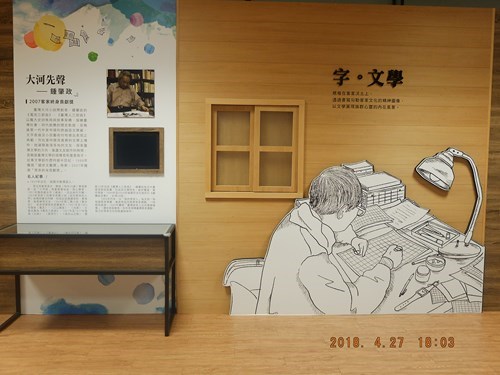
Wintry Night. The Desolate Village. Lonely Lantern – Lee Chiao
“In the great river of literature, I am but a small fish hiding in the shallow waters full of reeds, occasionally emerging but for the majority of my years just diving alone.”
His pen ever in hand, Lee Chiao has been a writer of literature for decades. His major work the “Wintry Night Trilogy” is regarded in Taiwan’s arts and literature circles as the country’s “War and Peace.” The trilogy narrates the struggles and dilemmas of Taiwanese Hakka people trying to survive. His works portray Hakka people of strong vitality, and the unyielding willpower of Taiwanese. He is a creator who cares about the land, full of a sense of history, crossing ethnic boundaries and with a broad vision. In 2006 Lee received the National Award for Arts, and in 2007 the Hakka Lifetime Contribution Award.
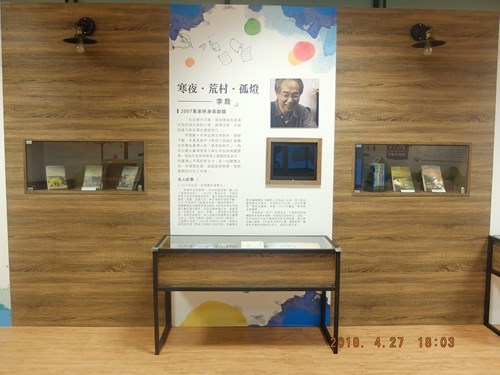
Literary Homecoming – Joyce Weng
A well-known U.S.-based female Hakka writer, Weng has been writing for half a century. Her earlier work was more concerned with themes of love, affection and marriage, presenting a rich Hakka style with her portrayals of Hakka women particularly moving. After moving to the United States, she was influenced by Western insistence on human rights, freedom, democratic politics and diverse cultures and began to engage in overseas Hakka movements. Weng received the Hakka Lifetime Contribution Award in 2008.
Weng’s more recent “Yang Mei Trilogy” has Taiwanese-Americans at its core, through her own life perspective reflecting on a hundred years of Taiwan history. The story traverses the U.S. and Taiwan, depicting Taiwanese-Americans exile state of mind, foreign realities and cares. In Taiwanese literature, Weng is the first female writer to complete such a roman-fleuve cycle.
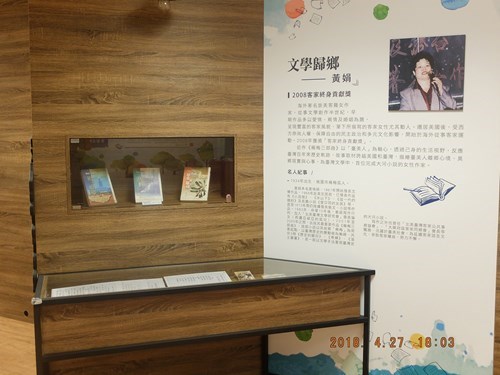
Tseng Kuei-hai | 2017 Hakka Lifetime Contribution Award
Dedicated to saving old monuments through the concept of the poetics of action, Tseng pushed to establish the first Taiwan Literature Trail; created the Protect the Kaoping River Green Alliance and the Kaohsiung City Green Association; helped the government raise the quality of drinking water for the greater Kaohsiung area; supported the Meinong anti-reservoir conservation campaign, made the government build the Chaozhou artificial lake in Pingtung, indirectly helping Taiwan establish a model for water conservation and ecological construction. In recent years he has been dedicated to writing about the Hakka literature, industry and history of the Liugdui area. Tseng continues to work for Taiwan Hakka’s sustainable development and his dedication has spanned ethnic groups and diverse areas of public affairs, such that he may truly be called an all-round social activist.
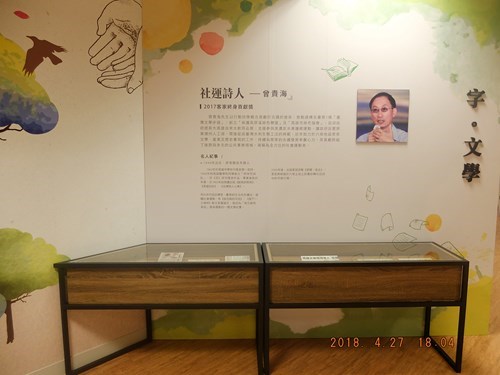
Music/Opera
Mountain Melody – Lai Pi-hsia
From a self-taught folk artist to a songwriter and playwright, for long years Lai Pi-hsia’s delicate and melodious voice has been heard throughout Taiwan’s Hakka communities.
Lai’s long years devoted to performing Hakka songs made her Taiwan Hakka music’s most representative performing artist; in collecting, recording, promoting, teaching and passing on Hakka folk songs, she has made a surpassing contribution to preserving Taiwan’s precious musical cultural heritage. In 2008 she received the Hakka Lifetime Contribution Award. In 2011, the Ministry of Culture designated her an important preserver of traditional Hakka folk song art. In 2012, she received the National Award for Arts.
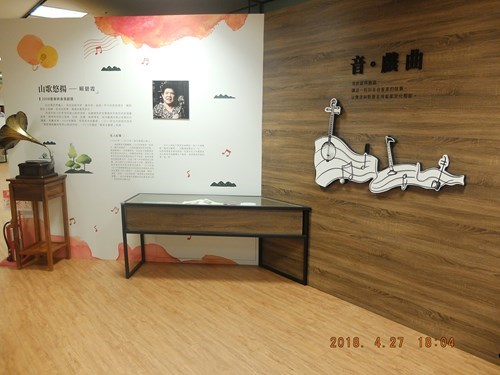
Musical Inheritance – Cheng Rom-shing
Steeped in music and theater from his childhood, Cheng inherited the Hakka Pa-Yin, Hakka opera and Hakka funeral rites performing arts traditions. In his schooldays he received a regular musical education and went to France to study at the University of Paris. After returning to Taiwan he embarked upon a decades-long career teaching opera.
Cheng Rom-shing is skilled in Hakka Pa-Yin, and proficient on several musical instruments. Without forsaking Hakka folk songs, tea-picking songs, and the “Nine pitches and 18 tones”, he incorporates musical elements from traditional opera like “Luan Tan,” “Wai Jiang” and “Si Ping” into Hakka opera. Cheng has led his Pa-Yin troupe to perform all over and it has gained an international reputation as a unique school. Cheng received the Hakka Lifetime Contribution Award in 2013.
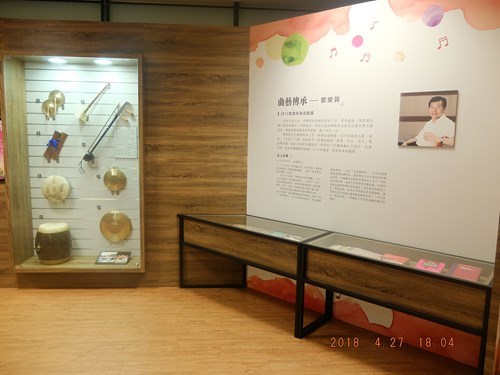
Education/Academia
Research Pioneer – Chen Yun-tung
Historian Chen Yun-tung has been dedicated to researching and writing about Hakka literature and history for many years. In 1978 he wrote the book “Hakka,” the first of its kind in systematic research, the culmination of Hakka research at home and overseas that is seen as an essential classic for Hakka researchers. His dedication to the study and advocacy of Hakka culture has made him a pioneer in Hakka research. He received the Hakka Lifetime Contribution Award in 2009.
Chen comes from five successive generations of scholars, one to the next giving themselves to education and teaching work, and also undertaking practical field research in Hakka areas, sparing no effort in compiling Hakka writing and history and local chronicles.
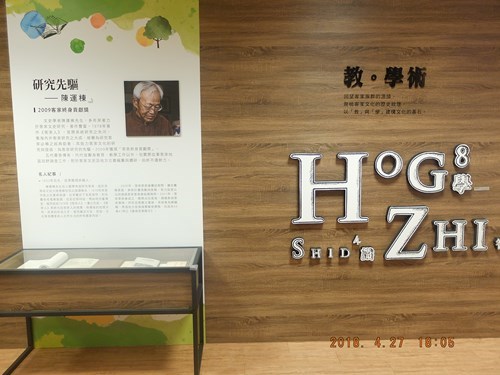
Hakka Legacy: Ku Kuo-sun
Ku Kuo-sun was a founder, practitioner and educator of Hakka academic research. He grew up in a farming family, laboring along with his father and brothers from a young age. He had a phonetic reading education. Around 1980, owing to huge changes in Taiwan’s social environment, he was especially concerned for the continued survival of Hakka language and culture, so the focus of his personal teaching turned to Hakka.
In an academic career spanning over half a century, Ku Kuo-sun was invested in Hakka language education and research. He developed phonetic symbols for the Hakka language and promoted unity in its written form. He was dedicated to cultivating talent among young people and used broadcast media to raise up Hakka culture, and so can be called an outstanding Hakka exemplar. He received the Hakka Lifetime Contribution Award in 2015.
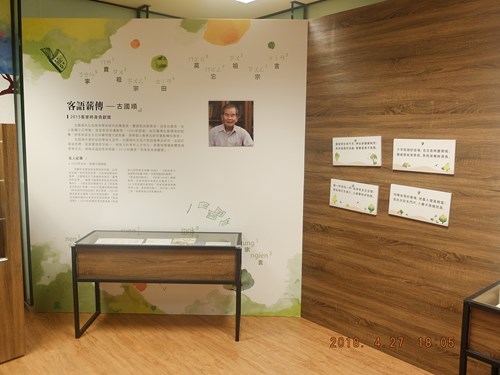
Hakka Research Pioneer Lo Seo-gim | 2017 Hakka Lifetime Contribution Award
From Hakka grammar, Taiwanese Hakka language, Hakka language structure and applications, analysis of Hakka words and sounds to the history of Taiwan Hakka development, Lo Seo-gim has been involved in Hakka research for over 30 years, publishing journal articles, academic conference papers, books. To gain a thorough understanding of Hakka culture, he read a large amount of document materials, and went to Hakka regions all over Taiwan, China and Southeast Asia to carry out field work and record the local Hakka culture in different areas. After his retirement he still continues his Hakka language and culture research and promotional work. His serious, straightforward, persevering and rigorous attitude towards life is exemplary.
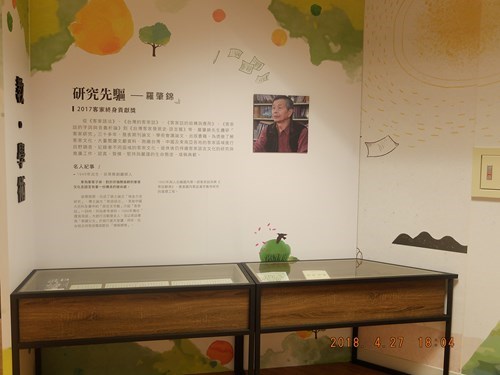
Paintings/Cartoons
The Dashanbei Kid – Liu Hsing-ching
Originally an elementary school teacher, Liu Hsing-ching got into the world of comics as he sought to correct children’s wrong ideas. Later he created a character based on his own mother. Wearing a smock and cropped pants and going barefooted, her personality simple and kind, honest and stubborn, Grand Auntie was a cartoon character with very distinctive Hakka women traits. Then taking himself as the blueprint he added the character Smarty. Together the duo became Taiwan’s most widely known cartoon characters.
In Liu’s later years he moved overseas and completed hundreds of folk paintings of the lives of ancestors. Through books he recorded and passed on the Hakka cultural style. He is a cartoon master, a great inventor, and even more a promoter of Hakka culture. He received the Hakka Lifetime Contribution Award in 2008.
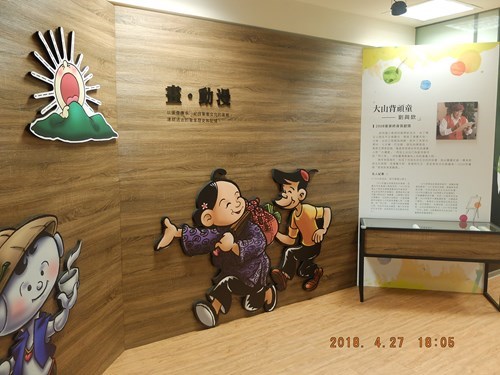
Philanthropy
Like a Spring Breeze – Wen Sung-chen
At age 15, Wen Sung-chen left his home in Miaoli County’s Nanzhuang and moved by himself to Taipei to seek his fortune. After becoming successful, he felt moved to give back to society. For decades he has cared about education and public welfare in his hometown, and has been dedicated to promoting the preservation of Hakka culture while his charitable works have spread throughout Taiwan and on both sides of the Taiwan Strait.
Wen has actively participated in all kinds of Hakka public affairs and cultural activities over the long term, sparing no efforts in promoting Hakka language education. Through establishing a scholarship program, he has encouraged and cultivated college students in their studies. His contribution to Hakka culture has grown from a grassroots foundation to spread his influence far and wide. He received the Hakka Lifetime Contribution Award in 2009.
